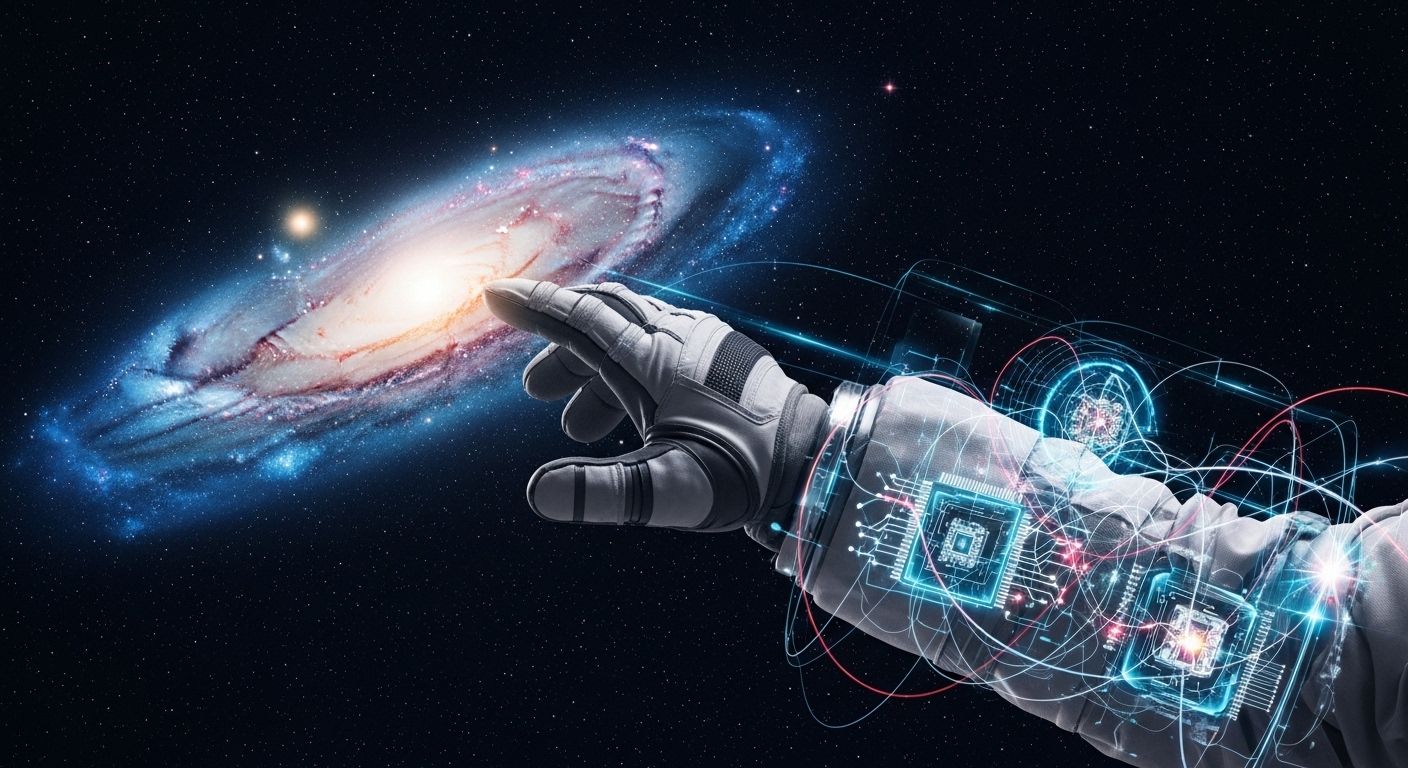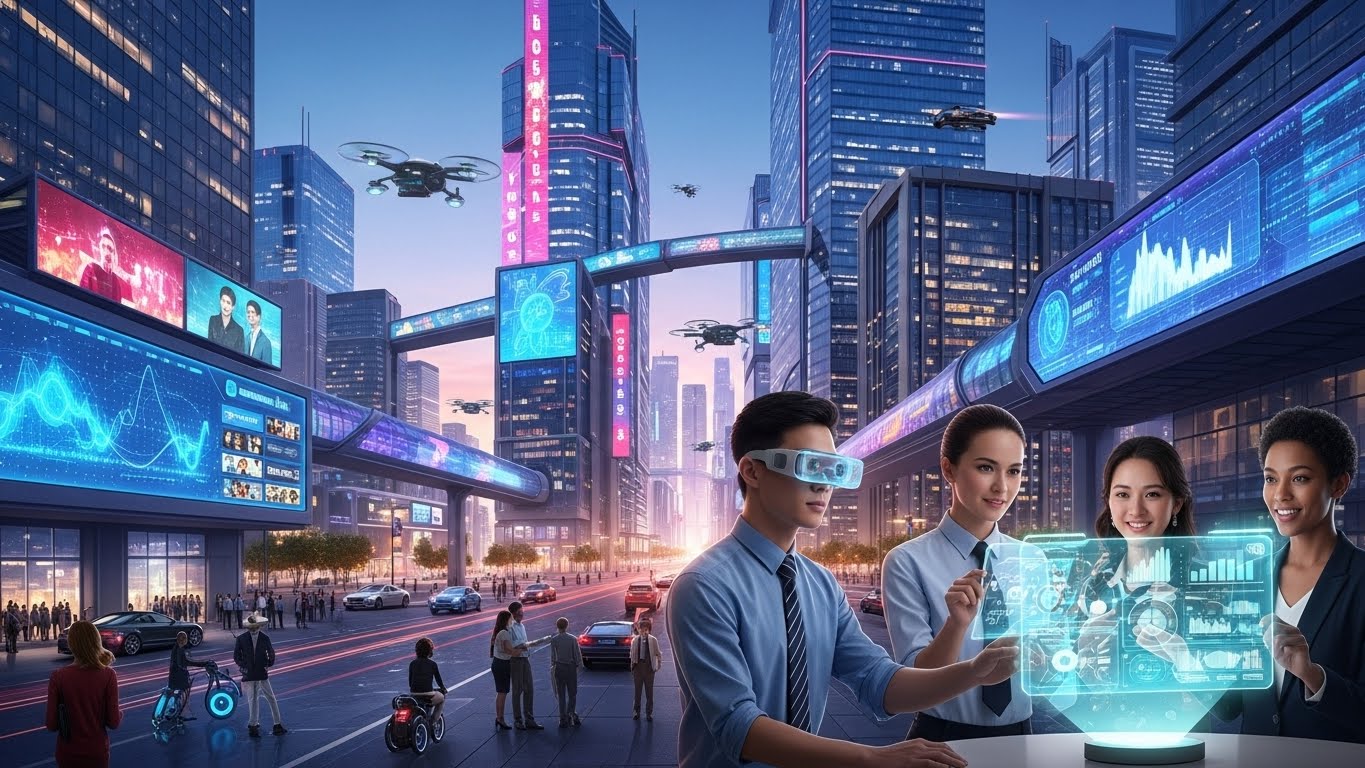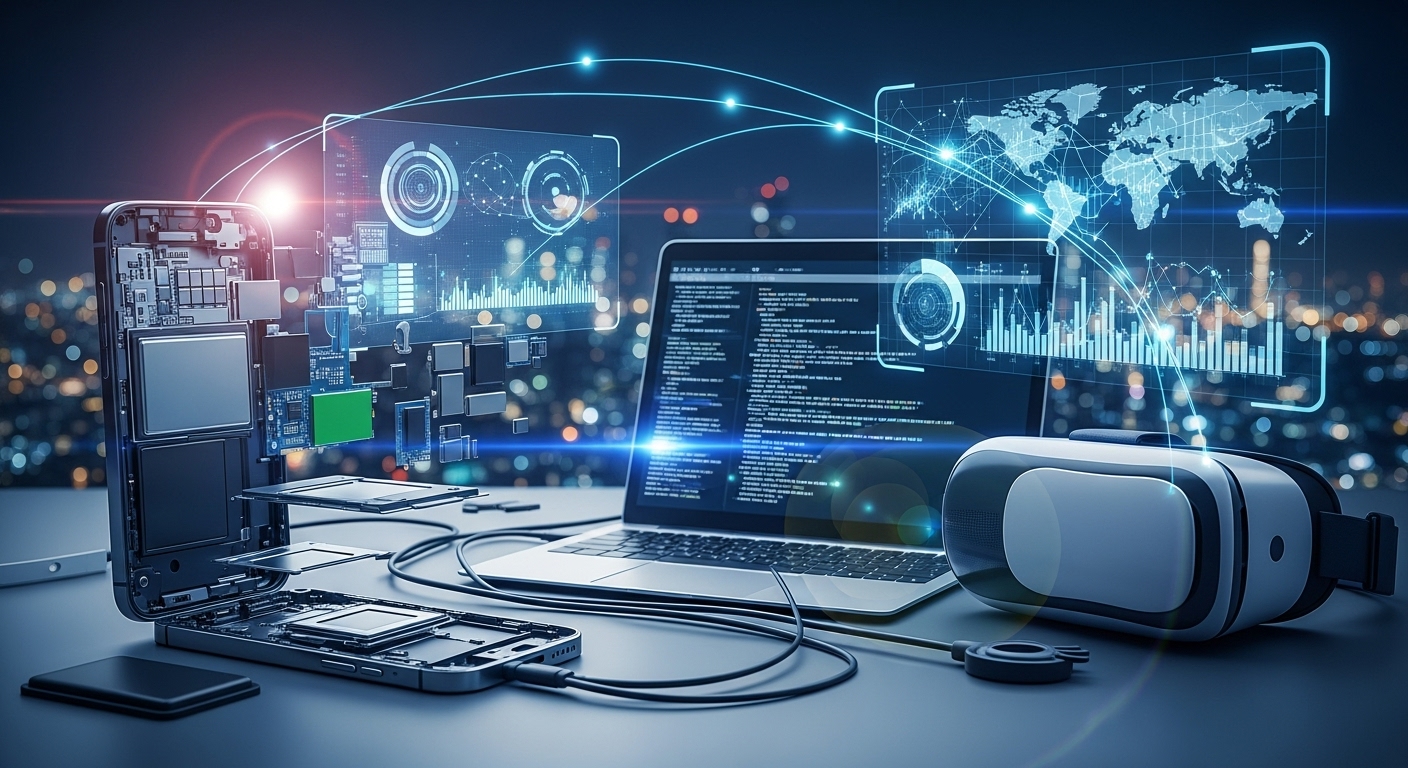Technology is an ever-evolving force that has shaped the way we live, work, and interact with the world around us. From the invention of the wheel to the latest breakthroughs in artificial intelligence, technology has continuously transformed human life in unprecedented ways. In the 21st century, the pace of technological change is accelerating faster than ever, bringing both opportunities and challenges. This blog explores the evolution of technology, its key areas of innovation, and the profound impact it has on society.
Early Technological Innovations
The story of technology begins thousands of years ago when early humans discovered tools and methods to manipulate their environment. The invention of the wheel and the use of fire were among the earliest technological breakthroughs. These innovations not only made life easier but also laid the foundation for human civilization. Tools for agriculture, like the plow, allowed humans to settle in one place and develop complex societies.
The Industrial Revolution marked another major leap in technological advancement. Machines powered by steam engines revolutionized manufacturing, transportation, and communication. Factories could produce goods at unprecedented speeds, cities grew rapidly, and economies expanded. During this period, electricity also became a pivotal technology, enabling innovations such as the telegraph, telephone, and early forms of electric lighting, transforming both domestic and professional life.
The Digital Revolution
The late 20th century brought the digital revolution, fundamentally changing how people live and work. The development of computers, the internet, and digital communication technologies created an interconnected world. Computers moved from being massive, expensive machines accessible only to governments and corporations to personal devices in homes and offices worldwide. This democratization of computing power paved the way for incredible advances in data processing, automation, and productivity.
The internet emerged as one of the most transformative technologies of the digital age. It provided unprecedented access to information, connecting people across continents in real time. Email replaced traditional mail, online banking transformed finance, and e-commerce revolutionized shopping. Social media platforms connected individuals like never before, creating new opportunities for communication, marketing, and networking.
Mobile Technology and Connectivity
The proliferation of smartphones and mobile technology in the 21st century has further transformed modern life. Mobile devices have become extensions of ourselves, offering instant access to information, communication, and entertainment. With billions of people using smartphones worldwide, mobile technology has reshaped the way businesses operate, governments provide services, and individuals interact with their environment.
Connectivity through high-speed internet and mobile networks has enabled technologies like cloud computing and real-time collaboration. Professionals can work remotely, students can access educational resources from anywhere, and global businesses can operate seamlessly across time zones. Mobile apps cater to virtually every need, from health monitoring to financial management, demonstrating how deeply technology has penetrated daily life.
Artificial Intelligence and Machine Learning
Artificial intelligence (AI) and machine learning (ML) represent the cutting edge of technological innovation. These technologies allow machines to learn from data, recognize patterns, and make decisions with minimal human intervention. AI is no longer limited to science fiction; it powers real-world applications in healthcare, finance, transportation, and entertainment.
In healthcare, AI algorithms analyze medical images, predict disease outbreaks, and assist in drug discovery. In finance, machine learning models detect fraudulent transactions and optimize investment strategies. Self-driving cars leverage AI to navigate complex environments, while virtual assistants like chatbots enhance customer service experiences. As AI technology continues to advance, it promises to reshape industries, improve efficiency, and create entirely new job sectors.
The Internet of Things (IoT)
The Internet of Things is another revolutionary development in technology. IoT refers to the interconnection of everyday devices via the internet, enabling them to collect, share, and analyze data. Smart homes equipped with IoT devices allow users to control lighting, temperature, and security systems remotely. Wearable devices track health metrics like heart rate, sleep patterns, and physical activity, empowering individuals to monitor and improve their well-being.
IoT is also transforming industries. In agriculture, connected sensors optimize irrigation and monitor crop health. Manufacturing plants use IoT-enabled machinery to detect maintenance needs before breakdowns occur, increasing efficiency and reducing costs. Smart cities leverage IoT to manage traffic flow, reduce energy consumption, and improve public safety, illustrating the potential of connected technologies to enhance urban living.
Cloud Computing and Data Management
Cloud computing has revolutionized how data is stored, accessed, and managed. By allowing organizations to store information on remote servers rather than local hardware, cloud computing provides flexibility, scalability, and cost efficiency. Companies can deploy software and services rapidly, collaborate in real time, and analyze large datasets without investing heavily in physical infrastructure.
Cloud services also enable the rise of big data analytics. Businesses can gather insights from massive amounts of information, identifying trends, predicting consumer behavior, and making data-driven decisions. From small startups to multinational corporations, cloud computing has become a critical component of modern business operations, highlighting the integral role of technology in organizational success.
Cybersecurity in the Digital Age
As technology advances, so do the risks associated with it. Cybersecurity has become an essential field, protecting sensitive data and digital infrastructure from malicious attacks. With more aspects of life moving online, from banking to healthcare, securing digital assets is a top priority.
Cybersecurity strategies include encryption, multi-factor authentication, threat detection, and continuous monitoring. Governments, businesses, and individuals must remain vigilant to evolving threats, as cyberattacks can cause financial losses, reputational damage, and even jeopardize national security. The increasing sophistication of cyber threats underscores the importance of investing in cybersecurity measures to safeguard technological progress.
Emerging Technologies and Future Trends
The pace of technological advancement shows no signs of slowing. Emerging technologies promise to redefine the future in profound ways. Quantum computing, for example, has the potential to solve problems that are currently intractable for classical computers, such as complex simulations in physics, chemistry, and logistics optimization. Biotechnology and genetic engineering offer breakthroughs in healthcare, agriculture, and environmental sustainability, enabling the development of personalized medicine and resilient crops.
Augmented reality (AR) and virtual reality (VR) are transforming entertainment, education, and professional training. AR overlays digital information onto the physical world, while VR creates immersive environments for gaming, simulation, and collaboration. These technologies are creating new ways to experience and interact with information, blending physical and digital realities seamlessly.
Blockchain technology is also emerging as a powerful tool beyond cryptocurrency. Its decentralized, transparent nature provides applications in supply chain management, secure voting systems, and digital identity verification. As society continues to explore the potential of blockchain, it is poised to redefine trust and accountability in digital transactions.
Technology and Society
The influence of technology extends far beyond industry and commerce. It shapes culture, communication, education, and even human relationships. Social media platforms have transformed how people connect, share information, and express themselves. While these platforms foster global communication, they also raise questions about privacy, mental health, and the spread of misinformation.
Education has been revolutionized by technology. Online learning platforms provide access to high-quality courses and resources, bridging geographical barriers and democratizing knowledge. Virtual classrooms, AI-driven tutoring systems, and interactive learning tools are enhancing student engagement and personalized learning experiences.
Technology also influences governance and civic engagement. Governments leverage data analytics, digital services, and e-governance platforms to improve public services and engage citizens. However, the integration of technology in governance raises ethical and privacy considerations, requiring careful oversight and transparent policies.
Challenges and Ethical Considerations
While technology offers immense benefits, it also presents significant challenges. Automation and AI threaten to displace traditional jobs, requiring workers to adapt to new skill demands. Privacy concerns arise as personal data is collected, analyzed, and stored by corporations and governments. Ethical dilemmas emerge with the development of AI, biotechnology, and autonomous systems, raising questions about responsibility, bias, and societal impact.
Sustainable technology development is another critical concern. The production, use, and disposal of electronic devices contribute to environmental degradation, resource depletion, and e-waste. As technology continues to advance, balancing innovation with ethical responsibility and environmental sustainability becomes increasingly important.
The Role of Innovation in Shaping the Future
Innovation is the driving force behind technological progress. Companies, researchers, and governments invest heavily in research and development to discover new solutions, improve existing technologies, and anticipate future needs. Collaborative innovation, where experts from multiple fields work together, often leads to breakthroughs that would not be possible in isolation.
Education, curiosity, and creativity are essential for fostering innovation. Encouraging problem-solving skills, interdisciplinary collaboration, and experimentation can prepare society to tackle complex challenges. As technology continues to evolve, innovation will remain a critical factor in addressing global issues, improving quality of life, and driving economic growth.
Conclusion
Technology has profoundly transformed every aspect of human life, from basic tools to complex artificial intelligence systems. Its evolution continues at an accelerating pace, bringing new opportunities, challenges, and ethical considerations. As society embraces technological innovation, it is essential to balance progress with responsibility, ensuring that the benefits of technology are accessible, sustainable, and aligned with human values.
The future promises even more remarkable developments, from quantum computing to biotechnology, AR/VR, and beyond. By understanding the impact of technology, investing in education and innovation, and addressing ethical challenges, humanity can harness the power of technology to create a more connected, efficient, and equitable world. The journey of technology is far from over, and its influence will continue to shape the course of civilization for generations to come.




